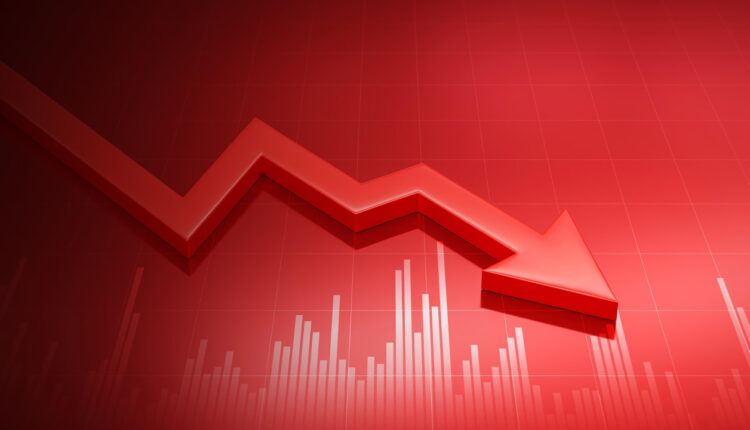The Indian stock market faced a brutal sell-off on Monday, mirroring carnage across global markets, as fresh tariffs imposed by US President Donald Trump against over 180 countries triggered widespread panic among investors. The move, seen by many as an “economic nuclear strike,” sent shockwaves through financial markets, culminating in one of the steepest single-day crashes in recent memory.
The benchmark indices—BSE Sensex and NSE Nifty—opened deep in the red and extended their losses through the day, both tumbling over 4% in early trade. Market breadth was overwhelmingly negative, with the advance-decline ratio at a stark 1:10. The overall market capitalization on the BSE plummeted by ₹19 lakh crore, falling to ₹383.81 lakh crore from ₹403.34 lakh crore.
Broader market indices took a harder hit, as the BSE Midcap index collapsed over 8%, and the BSE Smallcap index plunged 10.5%.
Volatility spiked sharply, with the India VIX soaring nearly 55% to 21.32, indicating heightened investor anxiety.
Sectoral Wipeout
All 13 major sectoral indices on the NSE ended in the red. Nifty Metal was the worst performer, amid fears of a global industrial slowdown. IT stocks also bore the brunt, due to their exposure to the US economy. Even traditionally safer sectors like FMCG and pharma couldn’t escape the rout, though their losses were relatively moderate.
Global Shockwaves
Asian markets suffered their worst day in over a decade, with the MSCI Asia Pacific Index plunging 7.9%—the most since the 2008 global financial crisis. Hong Kong’s Hang Seng Index tanked 10.7%, marking its steepest fall in 16 years. Major tech and industrial giants such as TSMC, Tencent, and Sony were among the biggest losers.
US markets, ironically, also found themselves among the hardest hit, underscoring the global blowback from Washington’s aggressive trade stance.



Comments are closed.